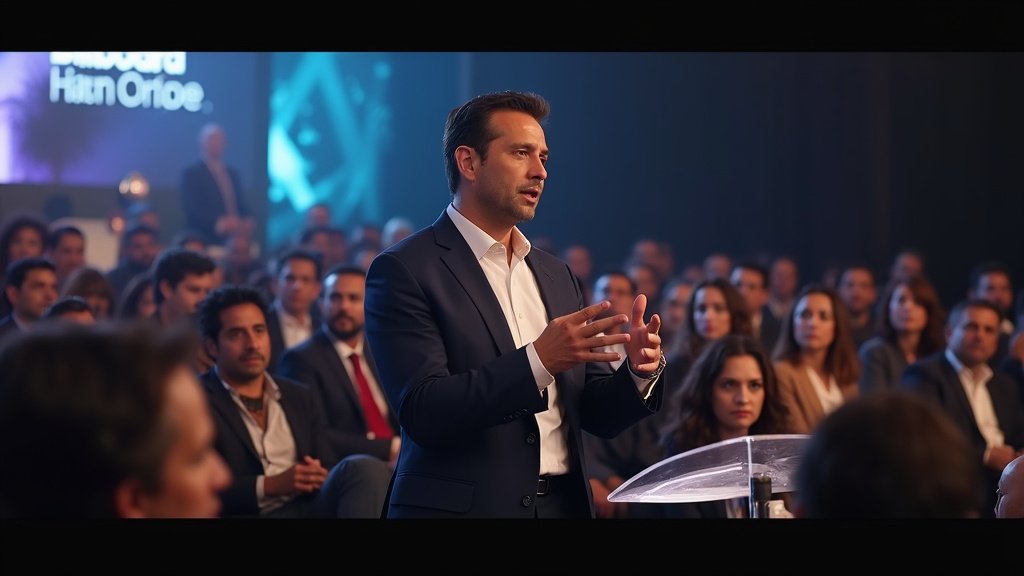In an era where musical boundaries are increasingly blurred, the **Latin music growth** has solidified its position not just as a vibrant cultural force, but as a dominant global phenomenon. Billboard CEO Mike Van, speaking at the recent Billboard Latin Music Week, emphasized the genre’s profound and expanding influence, particularly among younger demographics like Gen Z and Gen Alpha, highlighting the significant **Latin music growth**. This remarkable **Latin music growth** is reshaping the entire global music market.
The Unprecedented Rise of Latin Music and Its Continued Latin Music Growth
Latin music is no longer a regional specialty; it has become a powerhouse on the international stage. The U.S. Latin music market alone saw a significant 15% revenue increase in 2023, surpassing $1.1 billion and capturing nearly 10% of the U.S. market share. Globally, the Latin American region posted a remarkable 22.5% increase in recorded music revenues in 2024, marking its fifteenth consecutive year of growth and outperforming other global music trends. Streaming services remain the primary engine, accounting for over 87% of revenue in Latin America and 91% in the broader Latin music market, contributing to substantial streaming music revenue. This sustained Latin music growth is a key indicator of its expanding global footprint.
This surge is propelled by a confluence of factors: the pervasive reach of streaming platforms that democratize access, the viral power of social media, and a growing global interconnectedness. Industry experts highlight that younger generations, particularly Gen Z and Gen Alpha, are key drivers of this movement, showing a greater openness to foreign language music. This receptiveness has translated into massive streaming numbers, with Latin music being the fastest-growing genre in the U.S. for much of 2024, experiencing a 15.1% increase in on-demand audio streams, a key indicator of youth music consumption and a significant part of overall Latin music growth.
Crossover Appeal and Festival Domination Driving Latin Music Growth
The crossover appeal of Latin music is undeniable, with artists transcending linguistic and cultural barriers to reach diverse audiences worldwide. A prime example of this phenomenon is Colombian superstar Karol G, who is set to make history as the first Latina headliner at the Coachella Valley Music and Arts Festival in 2026. This landmark booking underscores the genre’s mainstream penetration and its ability to command massive stages, following in the footsteps of Bad Bunny, who was the first Latinx headliner in 2023, showcasing the power of artists like Karol G Coachella and contributing to impressive Latin music growth.
Beyond headlining slots, Latin artists are increasingly featured at major global festivals, with their presence steadily increasing at events like Coachella. The rise of subgenres like Regional Mexican music has been particularly explosive, now representing the largest Latin music subgenre in the U.S. and contributing significantly to overall growth. Artists such as Peso Pluma, Fuerza Regida, and Junior H are among the most streamed acts, reflecting the genre’s broad appeal and commercial viability, a testament to the diverse landscape within Latin music and its continued Latin music growth.
The Evolving Role of Technology and AI in Latin Music Growth
Technology, including artificial intelligence (AI), is playing an increasingly significant role in the music industry, and Latin artists are leveraging these tools to enhance their productivity. AI can assist in various aspects of production, from mastering tracks and generating new musical ideas to streamlining promotional campaigns and marketing efforts. These tools offer potential efficiencies, allowing artists to focus more on their creative work, and are becoming integral to AI in music production and the broader narrative of Latin music growth.
However, the integration of AI also raises important questions. Concerns linger about AI’s capacity to replicate the nuanced emotion and human creativity inherent in music. There are also considerations regarding the potential for oversaturation of AI-generated content, ethical implications around data usage, and the risk of diluting artistic authenticity. While AI can be a powerful tool, industry discussions emphasize the need to ensure it enhances, rather than replaces, human artistry within the context of ongoing Latin music growth.
Billboard Latin Music Week: A Hub for Community and Growth in Latin Music
Billboard Latin Music Week, a cornerstone event celebrating the genre, serves as a vital platform for connecting the Latin music community. As CEO, Mike Van has been instrumental in developing and expanding Billboard’s live experiences, including Billboard Latin Music Week, which aims to foster collaboration, provide educational opportunities, and help artists connect with peers and industry professionals. This annual event, which culminates in the Latin Billboard Music Awards, highlights the industry’s commitment to supporting and elevating Latin music artists and executives on a global scale, reinforcing the importance of Billboard Latin Week and its contribution to Latin music growth.
Van’s leadership at Billboard, marked by significant revenue growth and digital transformation, positions the company to continue its role in shaping the future of music. His emphasis on celebrating artist achievements through content, charts, and live events underscores the enduring and growing impact of Latin music on the global cultural landscape. The journey of Latin music from a regional sound to a dominant global force is a testament to its rich heritage, innovative artists, and expanding worldwide audience, solidifying its place in the industry and driving significant Latin music growth.


























